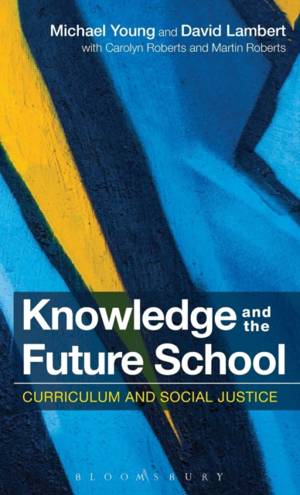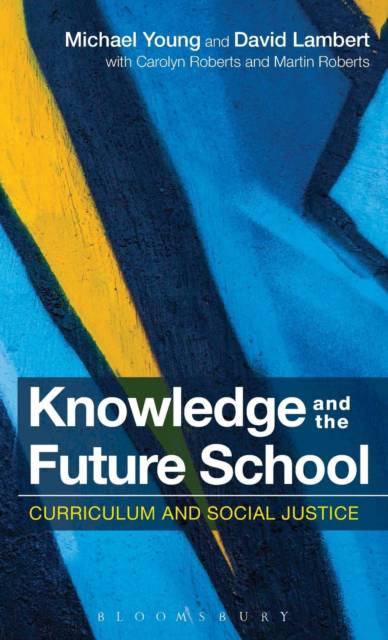
Bedankt voor het vertrouwen het afgelopen jaar! Om jou te bedanken bieden we GRATIS verzending (in België) aan op alles gedurende de hele maand januari.
- Afhalen na 1 uur in een winkel met voorraad
- In januari gratis thuislevering in België
- Ruim aanbod met 7 miljoen producten
Bedankt voor het vertrouwen het afgelopen jaar! Om jou te bedanken bieden we GRATIS verzending (in België) aan op alles gedurende de hele maand januari.
- Afhalen na 1 uur in een winkel met voorraad
- In januari gratis thuislevering in België
- Ruim aanbod met 7 miljoen producten
Zoeken
Knowledge and the Future School
Curriculum and Social Justice
Michael Young, David Lambert, Carolyn Roberts, Martin Roberts
Hardcover | Engels
€ 220,45
+ 440 punten
Uitvoering
Omschrijving
Written at a time of uncertainty about the implications of the English government's curriculum policies, Knowledge and the Future School engages with the debate between the government and large sections of the educational community. It provides a forward-looking framework for head teachers, their staff and those involved in training teachers to use when developing the curriculum of individual schools in the context of a national curriculum.
While explaining recent ideas in the sociology of educational knowledge, the authors draw on Michael Young's earlier research with Johan Muller to distinguish three models of the curriculum in terms of their assumptions about knowledge, referred to in this book as Future 1, Future 2 and Future 3. They link Future 3 to the idea of 'powerful knowledge' for all pupils as a curriculum principle for any school, arguing that the question of knowledge is intimately linked to the issue of social justice and that access to 'powerful knowledge' is a necessary component of the education of all pupils. Knowledge and the Future School offers a new way of thinking about the problems that head teachers, their staff and curriculum designers face. In charting a course for schools that goes beyond current debates, it also provides a perspective that policy makers should not avoid.Specificaties
Betrokkenen
- Auteur(s):
- Uitgeverij:
Inhoud
- Aantal bladzijden:
- 240
- Taal:
- Engels
Eigenschappen
- Productcode (EAN):
- 9781472534736
- Verschijningsdatum:
- 1/11/2014
- Uitvoering:
- Hardcover
- Formaat:
- Genaaid
- Afmetingen:
- 145 mm x 221 mm
- Gewicht:
- 453 g

Alleen bij Standaard Boekhandel
+ 440 punten op je klantenkaart van Standaard Boekhandel
Beoordelingen
We publiceren alleen reviews die voldoen aan de voorwaarden voor reviews. Bekijk onze voorwaarden voor reviews.









